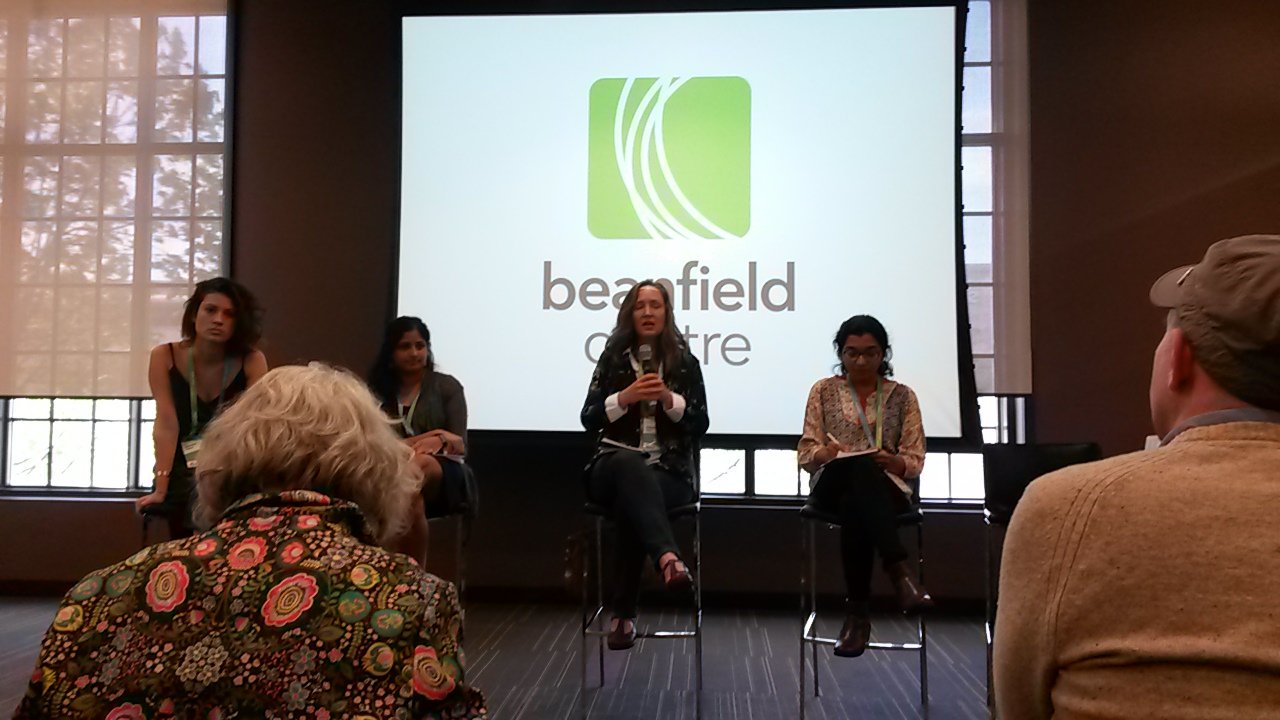Key Takeaways from RightsCon Toronto 2018
From May 16 to 18, the ScholCommLab’s Research Associate Dr. Katherine Reilly and Carol Muñoz Nieves attended RightsCon Toronto, an international event that brought together policy makers, human rights advocates, business leaders, scholars, and others to tackle leading human rights issues in the digital age.
Reilly and Muñoz are collaborating with researchers from across the world in an ambitious project titled “Policy Frameworks for Digital Platforms: Moving from Openness to Inclusion”. Coordinated by the NGO IT for Change and funded by IDRC, the project aims to investigate some of the most pressing questions around the platform economy. At this year’s RightsCon, Reilly joined researchers from Brazil and India in a thought-provoking panel titled “Platform Politick: Redefining Digital Rights for the Platform Generation“.

Throughout the session, panelists examined the multiple economic and social impacts of platformization—from labor rights and consumer privacy to equitable trade for countries at the margins of capitalism—and what they mean for the larger questions of openness, diversity and inclusion. By exploring the bigger picture of the political economy of digital rights in the platform economy, this panel stood out from others at the conference, many of which were focused on how to secure the privacy of individuals through legal and technological processes.
For those who missed it, we’re sharing some of the key highlights from the talk, right here on the ScholCommLab blog:
- Reilly discussed her research about goods sharing platforms in Vancouver, BC. Along with Muñoz, she is investigating what type of data these platforms are gathering and how their use of the data could influence the marketplace—a primary social justice concern associated with this new digital economy. She also spoke to the complexity of the policy landscape and how best to regulate platforms that intermediate transactions in the marketplace.
- The presenter from the Brazil-based project, Mariana Valente, discussed her team’s work with Netflix. The second country to adopt Netflix, Brazil is currently the 8th largest market for the platform worldwide, presenting major concerns about access to content, cultural diversity, and regulation. Valente explained that Netflix does not currently pay the same taxes as other media companies and proposed some ideas for how to better regulate the platform, as well as how to enable more inclusion of Brazilian content.
- Finally, India-based investigator Deepti Bharthur shared her team’s work on the platformization of agriculture in her home country. Rather than studying at platforms themselves, Barthur’s research aims to understand platformization as a process that transforms cultural environments and markets. Specifically, her team is investigating the value chain of agriculture. On one end of the value chain, India has seen immense growth of agri-tech platforms; on the other, the country is experiencing a rise in platform-based services for consumption, such as online grocery shopping.
For more information about the RightsCon Summit Series, visit rightscon.org.